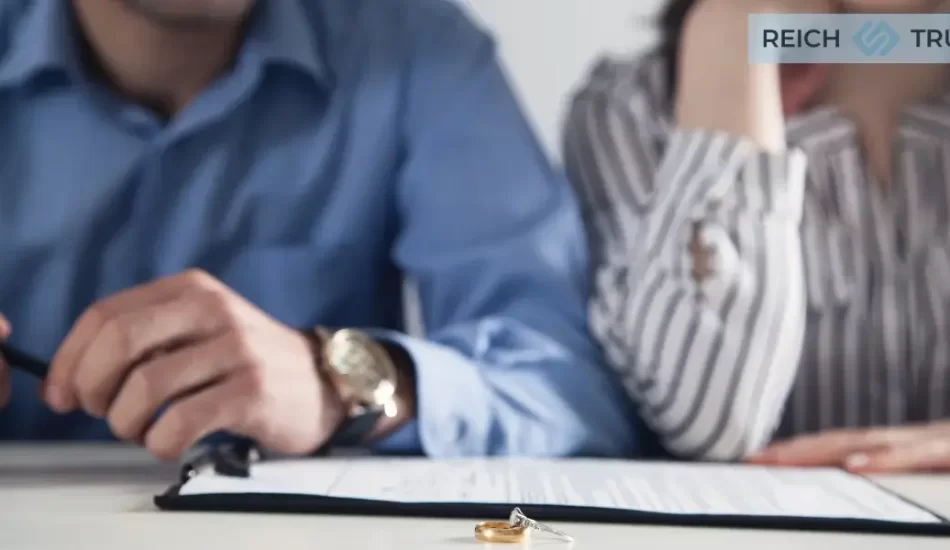|
|
Last Modified on Jun 16, 2025
When you get married, the last thing you’re thinking about is ending your relationship. Unfortunately, it’s a possibility for any couple to face this fate, and it’s important to understand your options if you do. For example, it can be highly beneficial to learn how to protect your assets in a Connecticut divorce case.
A Connecticut divorce attorney can guide you through the divorce process to ensure you’re doing everything correctly. However, protecting your assets may involve a bit more planning on your end. The good news is that a local attorney can help with that, too.
Divorce in Connecticut
About 51 percent of the population in Fairfield County is married. The divorce rate in Connecticut as a whole has been on the decline over the last two decades, hitting an all-time low of 1.6 per 1,000 people in 2020. In more recent years, it’s been sitting closer to 2.8. If you are in the process of going through a divorce, it’s important to understand how to protect your assets.
The median household income in Fairfield is approximately $149,641. Moreover, about 32 percent of households in the town are considered to be “cost-burdened.” This means that property owners spend at least 30 percent of their income on housing costs. When you get a divorce, you have to make decisions about what happens with your home.
Typically, spouses can come to an agreement to either let one spouse continue to live in the home, or they decide to sell the property and split the earnings between them. Your household isn’t the only asset that must be divided in a divorce.
Connecticut is an “all property” divorce state, which means that any property can be separated in a divorce regardless of whether it was acquired before, during, or after the marriage. They aim to distribute property equitably, which notably may not mean everything is split evenly down the middle.
Even though property isn’t classified as community property versus separate property for the purpose of dividing assets between spouses, it’s still taken into consideration. For example, a court may decide to award one spouse an asset that they owned before the marriage. This isn’t guaranteed, though. If an equitable division makes more sense, even assets solely owned by one spouse can be divided.
How to Protect Your Assets During a Divorce in Connecticut
Even though essentially all assets and debts are on the table when you get divorced in Connecticut, it is possible to protect yourself if you find yourself going through this process. For better or worse, doing this involves a bit of foresight and planning. Fortunately, a Connecticut attorney can help you get everything prepared.
Two of the most surefire ways to secure your assets include:
- Prenuptial agreements. Also known as premarital agreements, these legal contracts can address any number of financial issues between two spouses. This can include property control and rights. These agreements are made before a marriage is made official.
- Postnuptial agreements. These types of agreements can address a variety of financial matters, including protecting assets that were acquired before marriage or through inheritance. Postnuptial agreements are made during a marriage.
By establishing terms through a prenuptial or postnuptial agreement, you can protect certain assets from being divided. It’s important to note that a court won’t randomly divide property or simply split it down the middle.
Even though Connecticut doesn’t separate marital property and separate property when dividing assets during a divorce, they do take these things into consideration when determining how to split everything up. By keeping clear documentation of your ownership over certain assets, you can improve your chances of maintaining full ownership over them.
FAQs
Q: How Do I Protect Myself Financially in a Divorce in Connecticut?
A: If you’re going through a divorce, it’s important to understand what steps you can take to protect your financial assets. This is especially important because Connecticut is an “all property” divorce state, so any assets and debts are liable to be separated regardless of whether you purchased or accrued them before, during, or after the marriage.
Q: How Are Assets Divided in a Divorce in Connecticut?
A: Connecticut is an “all property” divorce state, which means marital property and separate property are not classified separately when it comes to determining how to divide assets between spouses. Many states are community property divorce states, which means any property purchased solely by one spouse can be protected from this process.
Q: Is it Worth it to Work With a Connecticut Divorce Lawyer?
A: You don’t have to work with a divorce lawyer, but you may find that it’s beneficial to have a skilled professional on your side. Your attorney can do everything from providing advice and guidance to drafting agreements, negotiating deals, and representing you in court if necessary. You may want to consider working with a lawyer even if you’re expecting an easy, uncontested divorce simply to avoid any potential issues down the road.
Q: What Type of Trust Protects Assets From a Divorce in Connecticut?
A: Connecticut doesn’t distinguish marital property from separate property. This means that trusts can be subject to division during a divorce. A court may look at how much access a spouse has to a trust to determine whether or not it’s eligible to be separated. If a spouse is seeking to divide a trust, they must establish that interest during the divorce. This is different from child support and spousal support orders, which can be modified after a divorce is finalized.
Connect with a Connecticut Divorce Lawyer to Begin Preparing for Your Divorce
Navigating a divorce can be complicated and emotionally draining, especially if you try to do it on your own. That’s why it’s wise to secure legal representation from a Connecticut divorce attorney you can trust. Our goal at Reich & Truax, PLLC is to make the divorce process as smooth and straightforward as possible, so you can move forward with the rest of your life. If you’re ready to discuss your divorce with an attorney, call us to set up a consultation today.






